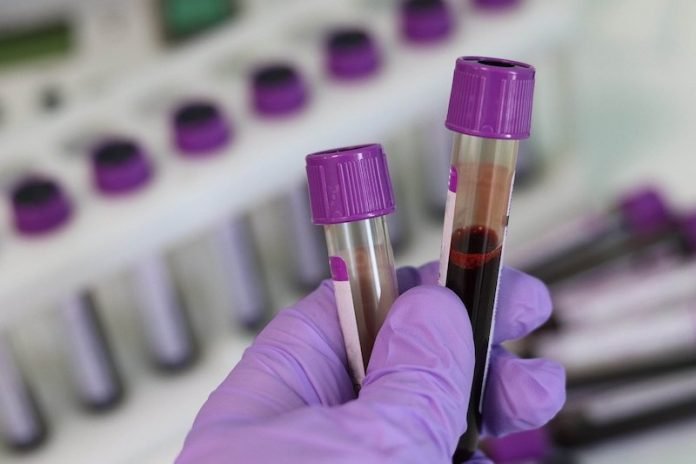
In a new study from the Hong Kong University of Science and Technology, researchers develop a simple but robust blood test for early detection and screening of Alzheimer’s disease (AD) for the first time, with an accuracy level of over 96%.
Currently, doctors mainly rely on cognitive tests to diagnose a person with AD.
Besides clinical assessment, brain imaging and lumbar puncture are the two most commonly used medical procedures to detect changes in the brain caused by AD.
However, these methods are expensive, invasive, and frequently unavailable in many countries.
In the study, the team identified 19 out of the 429 blood proteins linked to AD to form a biomarker panel representative of an “AD signature” in the blood.
Based on this panel, the team has developed a scoring system that distinguishes AD patients from healthy people with more than 96% accuracy.
This system can also differentiate among the early, intermediate, and late stages of AD, and can be used to monitor the progression of the disease over time.
These exciting findings have led to the development of a high-performance, blood-based test for AD, and may also pave the way to novel therapeutic treatments for the disease.
The team says with the advancement of ultrasensitive blood-based protein detection technology, they have developed a simple, noninvasive, and accurate diagnostic solution for AD, which will greatly facilitate population-scale screening and staging of the disease.
The discovery was made using the proximity extension assay (PEA)—a cutting-edge ultrasensitive and high-throughput protein measurement technology, to examine the levels of over 1,000 proteins in the plasma of AD patients in Hong Kong.
AD, which affects over 50 million people worldwide, involves the dysfunction and loss of brain cells. Its symptoms include progressive memory loss as well as impaired movement, reasoning, and judgment.
While patients often only seek medical attention and are diagnosed when they have memory problems, AD affects the brain at least 10 to 20 years before symptoms appear.
If you care about Alzheimer’s disease and dementia, please read studies about this health problem can make Alzheimer’s disease more dangerous and findings of new tests can detect very early signs in Alzheimer’s disease before symptoms appear.
For more information about Alzheimer’s detection and prevention, please see recent studies about people with these 2 mental problems may develop Alzheimer’s early and results showing a new method for an effective prevention of Alzheimer’s disease.
The study is published in Alzheimer’s & Dementia: The Journal of the Alzheimer’s Association. One author of the study is Prof. Nancy Ip.
Copyright © 2021 Knowridge Science Report. All rights reserved.



